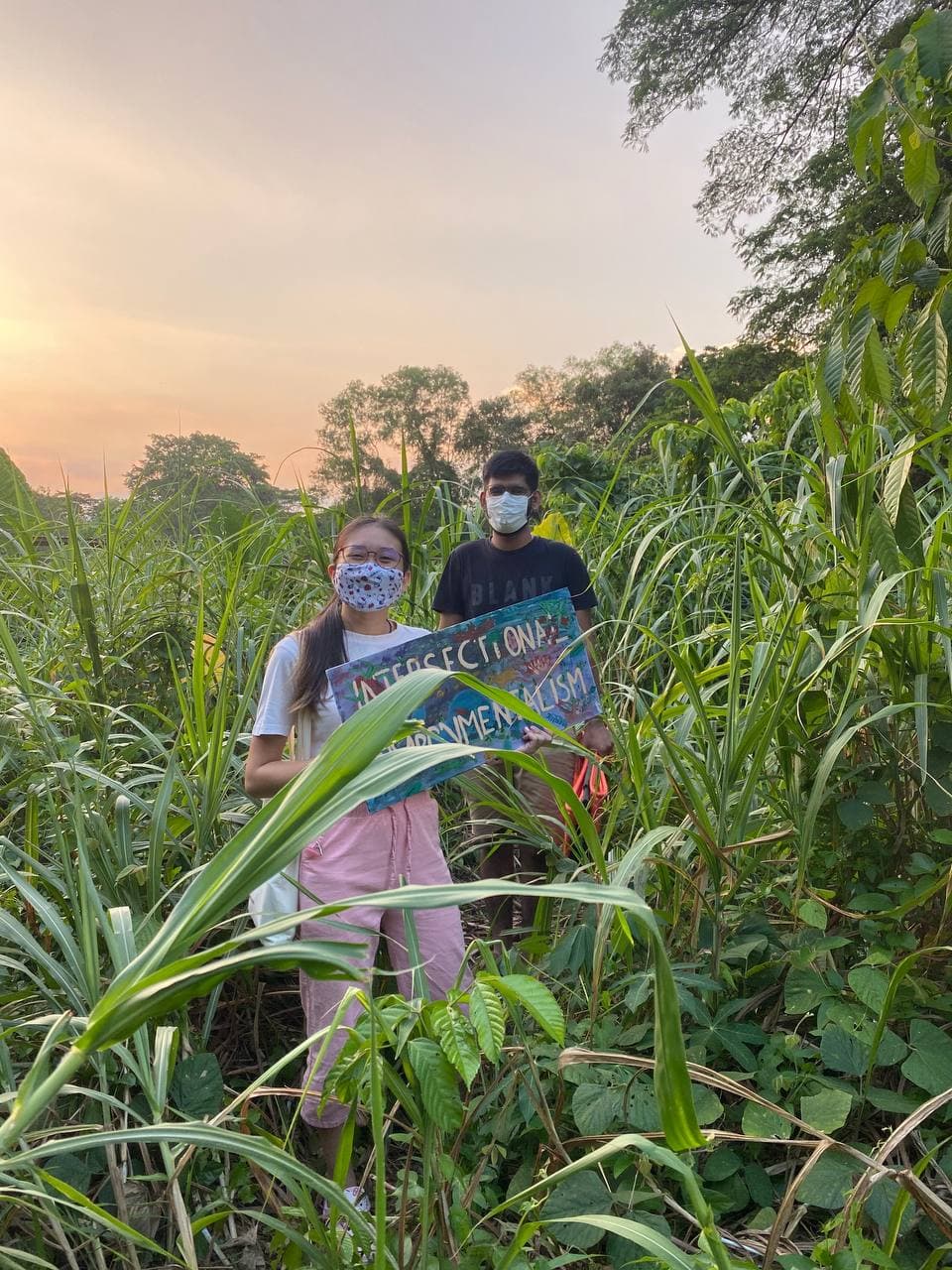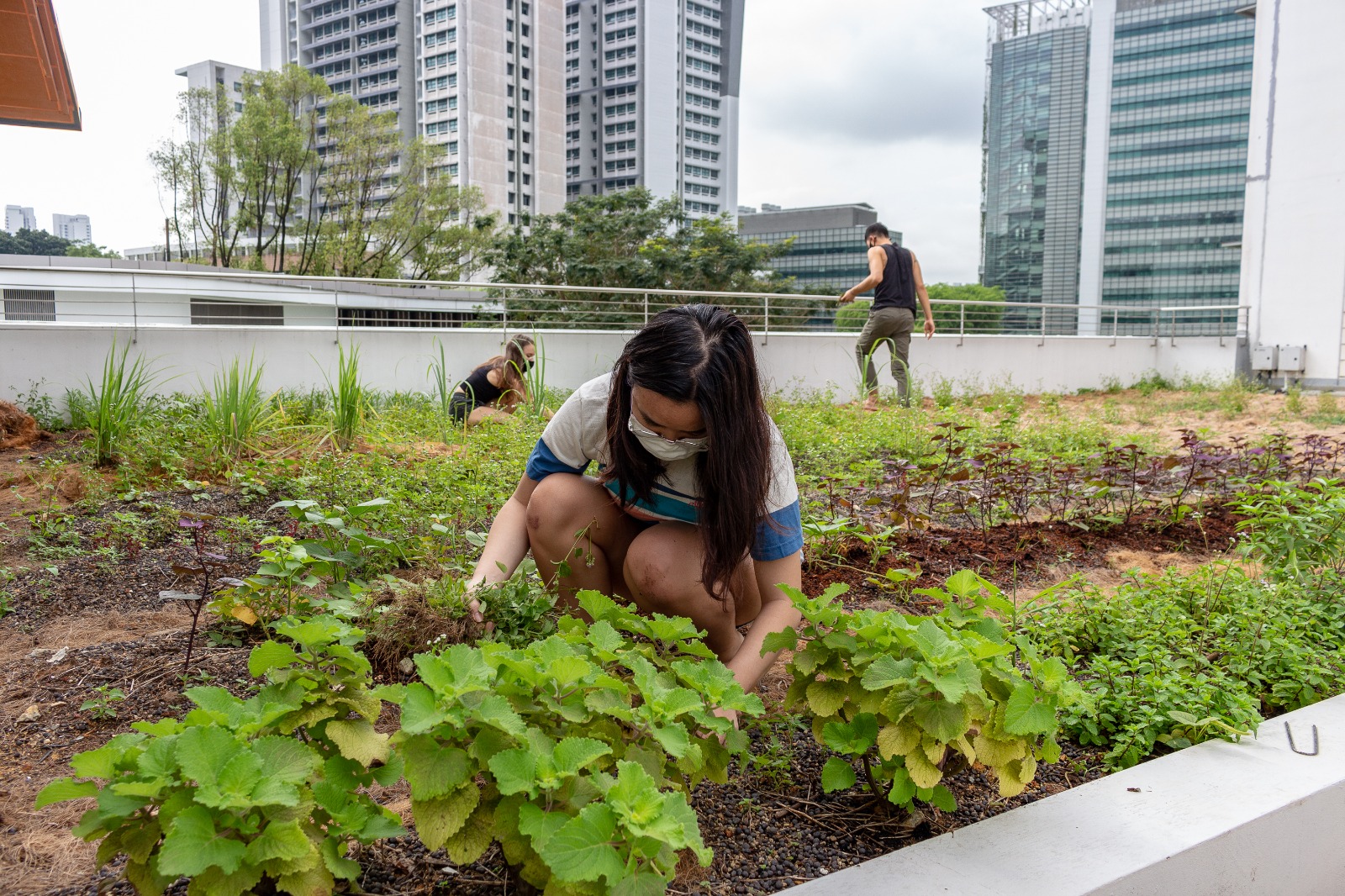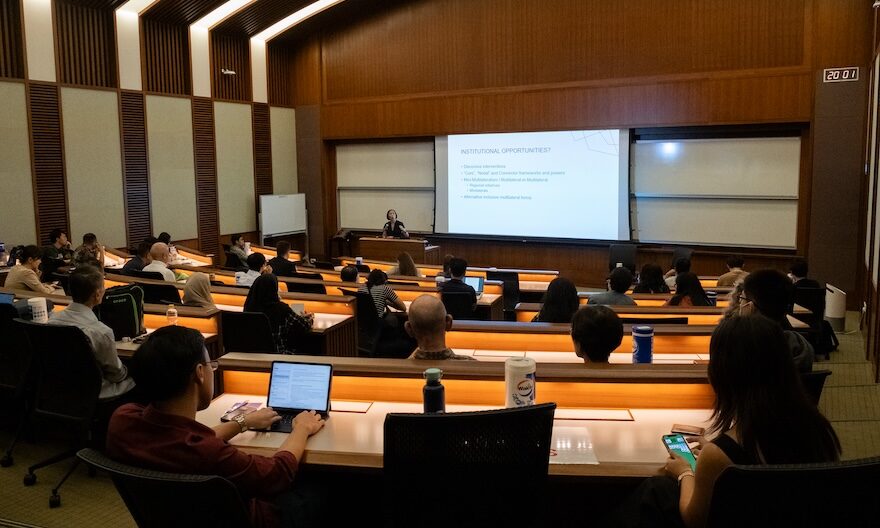Environmental sustainability at Yale-NUS
An ambitious idea to expand the Yale-NUS College community’s participation in this year’s global lights-out event, Earth Hour, led to a week-long celebration of Earth Week on campus.
From 29 March to 3 April 2021, the College was abuzz with a diverse range of activities. From organising student teach-ins, art jams, film screenings, stargazing and even pop-up flea fundraisers, there was a wide array of events that aimed to raise awareness about environmental issues while inviting the participation of the larger school population through creative means.
The main coordinator for Earth Week was I’dECO, a student organisation that functions as an umbrella organisation housing different green projects and initiatives on campus.
On the plans for Earth Week, Lan Ran (Class of 2023), the current president of I’dECO, said, “Beyond the hopes of raising awareness for sustainability, we also wanted to ensure diversity and inclusivity [through the week-long programmes]. One of our aims was to engage as much of the school community as possible, and to show that the environment is all-encompassing – we did this by organising a range of activities to show that there are many different ways for people to participate in the green movement.”
 A collage of Earth Week events organised by various Yale-NUS students and student organisations. From top left (clockwise): a pop-up flea organised by students Esther Koh Siang and Ethel Pang Hwee Min (both Class of 2022) that encouraged sustainable fashion, a panel on recycling organised by I’dECO, an intertidal walk coordinated by Yale-NUS SCUBA Environments Association, and an art jam session organised by the Intersectional Environmentalism community. Images provided by the respective students and organising groups.
A collage of Earth Week events organised by various Yale-NUS students and student organisations. From top left (clockwise): a pop-up flea organised by students Esther Koh Siang and Ethel Pang Hwee Min (both Class of 2022) that encouraged sustainable fashion, a panel on recycling organised by I’dECO, an intertidal walk coordinated by Yale-NUS SCUBA Environments Association, and an art jam session organised by the Intersectional Environmentalism community. Images provided by the respective students and organising groups.
When I’dECO first proposed Earth Week, they did not expect it to be such a large-scale event. Lan Ran highlighted that it was the enthusiasm and support of the community in Yale-NUS that led to the success of the event. She was especially heartened by the participation of other student organisations like the Astronomy Club and the Fashion Society, who took the initiative to explore sustainability-related topics in their field, such as light pollution and sustainable fashion respectively.
The line-up of Earth Week’s activities was a tangible manifestation of how the environmental sustainability movement in Yale-NUS has grown over the years. Environmental issues are not just a niche interest, distinct and separate from other interests and causes. Rather, environmentalism in the College is now being explored as an intersectional issue.
Leading this movement is a newly founded identity collective, known as the Intersectional Environmentalism (IE) community, which was founded by Yeo Jing Ying (Class of 2022) and Shikhar Agarwal (Class of 2021). Through its activities, the group aims to encourage the community to reflect on how environmentalism connects to various issues and systems of power, such as capitalism, ableism, and neo-imperialism.
 IE co-founder Jing Ying (left) and student participant Sambhav Bhandari (Class of 2020) on a hike organised by the IE community through the Dover Forest. Image provided by Yeo Jing Ying.
IE co-founder Jing Ying (left) and student participant Sambhav Bhandari (Class of 2020) on a hike organised by the IE community through the Dover Forest. Image provided by Yeo Jing Ying.
Shikhar believes that the IE community is helping to broaden the scope of what is considered “environmental”. “By exposing people to different lenses of understanding environmentalism, people are able to see clear links between the things they already care about and the environment, and vice versa.”
Another key environmental group that sprouted recently is the Farming Collective, a student organisation that was just established this semester. Previously a group of I’dECO members who tended to the modestly-sized urban farm at Cendana Residential College, the initiative has since expanded with a larger pool of student members who also tend to a rooftop farm situated above Saga Residential College.
 Marilyn Kang (Class of 2022) and other student members of the Farming Collective working on the Saga farm. Image taken by Glen Ang for Yale-NUS College.
Marilyn Kang (Class of 2022) and other student members of the Farming Collective working on the Saga farm. Image taken by Glen Ang for Yale-NUS College.
Other than learning the methods of farming, the group seeks to incorporate and embody permaculture practices, and share this with the larger student population. Members gather on a weekly basis to manage the farms, and occasionally conduct activities and events open to the wider school population, such as workshops on permaculture, composting, and tours to local farms in Singapore.
Managing a farm is hard work, and it took a lot of organising and collective effort – from students, faculty members and even staff– to make the rooftop farm happen. The group’s current coordinators, Marilyn Kang and Heng Jie Min (both Class of 2022) “proudly see the club as working hand-in-hand with the school”, and expressed that they were looking forward to see how the school will continue this partnership.
These student leaders in the environmental sphere are optimistic about how the sustainability movement on campus has changed over the years.
Shikhar noted that the number of students directly involved in sustainability initiatives has increased, and students seem to be engaging in a wider range of environmental topics and issues.
In addition, Marilyn, who is a third year student in the Double Degree Programme with Law, is a testament that it is no longer just Environmental Studies students who are involved in green issues. More students from various majors have expressed interest in activities related to environmental sustainability.
Lan Ran said, “As we create more spaces for conversations and engage more people, the movement will definitely continue to grow and influence a greater audience.”




